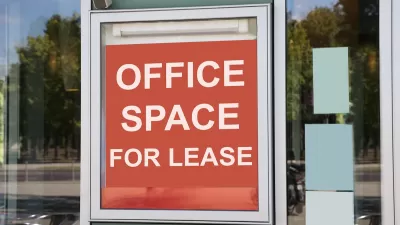An organization tasked with oversight of the accounting methods of government agencies will require local governments to report the value of property, sales, and income tax breaks.
Theo Francis reports on the details of a rule approved earlier this week by the Governmental Accounting Standards Board (GASB) to "require government officials to show the value of property, sales and income taxes that have been waived under agreements with companies or other taxpayers." The rule will take effect next year.
A sample of the kind of information that will be reported as a result of the new report:
Shelby County, Tenn., which includes the city of Memphis, waived about $48.7 million in property taxes last year, equivalent to 6.5% of its property tax receipts. Chicago channeled $372 million to nearly 150 special taxing districts in 2014, or $1 for every $13 of property taxes billed in the city, according to figures from the Cook County clerk’s office, which collects city taxes. Before it was shut down in 2012, a major California tax-incentive program sent about 12% of statewide property taxes to redevelopment agencies—and more than 25% in some counties—often benefiting private industry.
That information, according to Francis, shows how discounted property taxes, in their many forms, quickly pile up for local governments.
For the uninitiated, the GASB is an independent organization that establishes and improves standards of accounting and financial reporting for U.S. state and local governments. According to the group's website, the GASB is recognized by governments, the accounting industry, and the capital markets as the official source of generally accepted accounting principles (GAAP) for state and local governments [pdf].
FULL STORY: New Rule to Lift Veil on Tax Breaks

Planetizen Federal Action Tracker
A weekly monitor of how Trump’s orders and actions are impacting planners and planning in America.

Restaurant Patios Were a Pandemic Win — Why Were They so Hard to Keep?
Social distancing requirements and changes in travel patterns prompted cities to pilot new uses for street and sidewalk space. Then it got complicated.

Map: Where Senate Republicans Want to Sell Your Public Lands
For public land advocates, the Senate Republicans’ proposal to sell millions of acres of public land in the West is “the biggest fight of their careers.”

Maui's Vacation Rental Debate Turns Ugly
Verbal attacks, misinformation campaigns and fistfights plague a high-stakes debate to convert thousands of vacation rentals into long-term housing.

San Francisco Suspends Traffic Calming Amidst Record Deaths
Citing “a challenging fiscal landscape,” the city will cease the program on the heels of 42 traffic deaths, including 24 pedestrians.

California Homeless Arrests, Citations Spike After Ruling
An investigation reveals that anti-homeless actions increased up to 500% after Grants Pass v. Johnson — even in cities claiming no policy change.
Urban Design for Planners 1: Software Tools
This six-course series explores essential urban design concepts using open source software and equips planners with the tools they need to participate fully in the urban design process.
Planning for Universal Design
Learn the tools for implementing Universal Design in planning regulations.
Heyer Gruel & Associates PA
JM Goldson LLC
Custer County Colorado
City of Camden Redevelopment Agency
City of Astoria
Transportation Research & Education Center (TREC) at Portland State University
Camden Redevelopment Agency
City of Claremont
Municipality of Princeton (NJ)





























